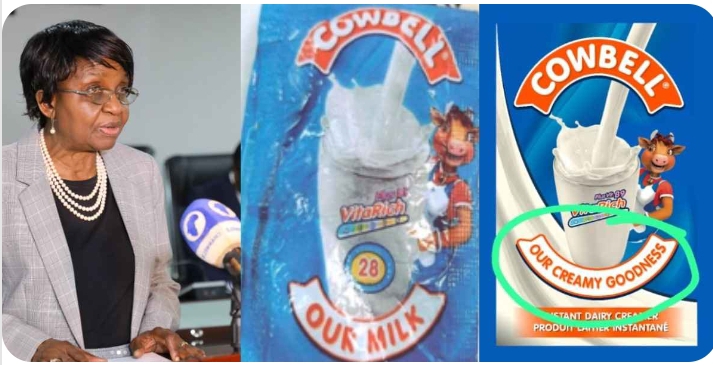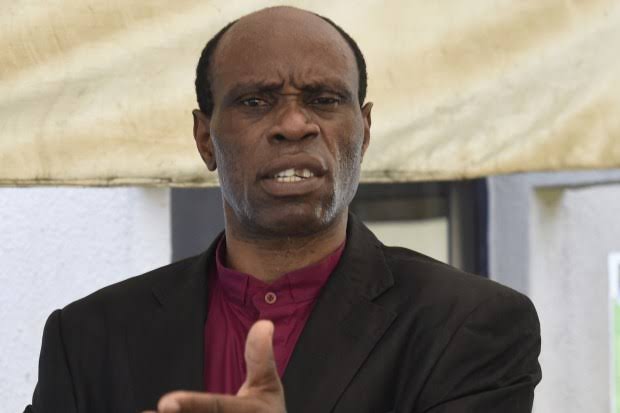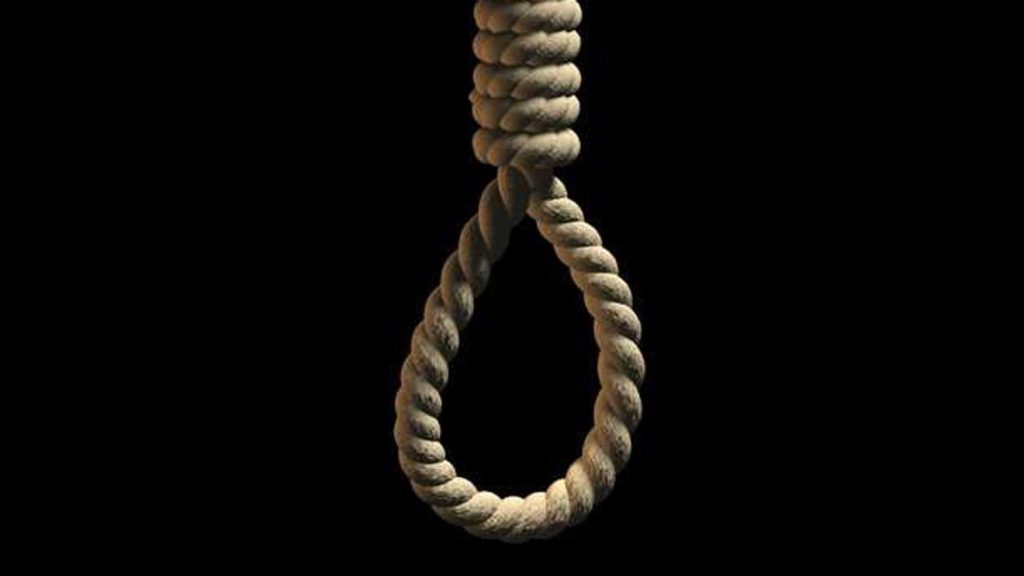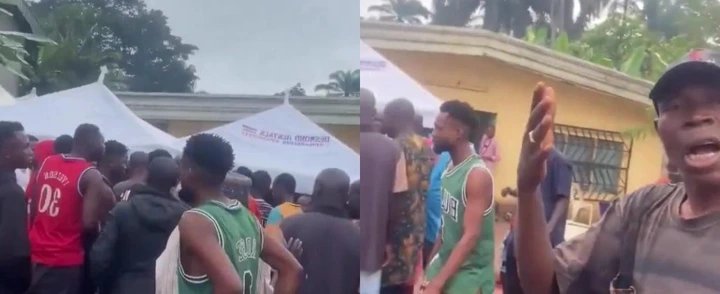Politics
Imo Homeland Security Commissioner—Ugorji lays out security agenda for the state

“We organize, formalize and standardize Vigilante groups in all the Autonomous Communities in Imo State. In the pursuit of peace, whatever works and does not compromise the sovereignty of the state and does not subvert law and order, should be explored.” ~ Dr. Ugorji O. Ugorji
The Special Adviser to Imo State Governor on Public Enlightenment, Prince Eze Ugochukwu was in a conversation with the Imo State Commissioner for Homeland Security and Vigilante Affairs, Dr. Ugorji O Ugorji.
Below are the excerpts of their conversation:
Sir, may we get to know you and a little of your background?
I am Ugorji Okechukwu Ugorji. I am the first child of HRH Eze Stephen Nwabueze Ugorji, and Ugoeze Major (rtd) Anastasia Ngozi Ugorji. I hail from Lorji Nwekeukwu Autonomous Community in Aboh Mbaise LGA.
I hold a Doctorate degree from Rutgers University in New Brunswick, New Jersey, and a Master’s degree in Homeland Security from George Washington University, Washington, DC. I also have a second Master’s degree in Counseling and Human Resources Management from The College of New Jersey, and two Bachelor’s degrees (in Biology, and Psychology) also from The College of New Jersey.
I am an alumnus of Ekulu Primary School, Enugu, and an alumnus of Holy Ghost College, Owerri. I also attended Ife Secondary School, Ezinihitte , Mbaise.
I am a writer, poet, publisher, scholar, broadcaster, and public administrator. I am married to my love, Uche Ugorji, with six children (5 boys and one girl).
There is duality in the description of your job namely Homeland security and Vigilante Affairs. What do both entail?
The Vigilante part speaks to the Ministry’s responsibility to organize, formalize and standardize Vigilante groups in all the Autonomous Communities in Imo State.
The Homeland Security aspect is a reflection of Governor Uzodimma’s state-of-art vision for security and safety in Imo State. It speaks to a whole-of-government approach to security, combining both the hard power and the soft power of the state.
What are the major types of insecurity in Imo State and what is your Ministry doing to tackle them?
The major types of insecurity are (1) sponsored political violence, (2) organized and lone-wolf criminal enterprises, (3) group conflicts, as exemplified by land/communal disputes, as well as farmers and herders’ clashes, (4) security challenges caused by the sell and use of illegal hard drugs, (5) proliferation of small firearms, (6) apparent anti-establishment violence, and (7) occasional violence from the separatist movement in the region.
While the Federal security agencies in the state focus on hard power responses to the security challenges, my Ministry is mainly focused on soft power approaches. This approach includes programmes in peace building, protection of critical infrastructure, alternative narrative initiatives, ideation to mitigate the separatist sentiments, cyber security to guard against cybercrimes, etc.
Imo State sits at the centre of the South East States and also a transit into the South South States. With noticeable cross-border criminal activities, are there any forms of cooperation with other states to combat crimes and share intelligence?
Yes. Governor Hope Uzodimma has directed that I interface with my counterpart officials in the region. The goal is to establish networks, synergy and interoperability in security measures with our bordering states, and with the Federal Government agencies.
You will see that collaboration in the upcoming First Imo Homeland Security International Conference scheduled for August 11 and 12, 2022 in Owerri. The Chief of Staff of President Buhari, Professor Ibrahim Gambari CFR will headline the conference as Keynote Speaker, and several security experts from the South East and around the country will participate.
There is a place for technology in law enforcement in today’s digital world. Is your Ministry applying technology in crime prevention and detection?
Our Action Plan in the Ministry includes the use of state-of-art security equipment and surveillance systems. We also plan to establish a Central information and data gathering joint for 24-hour monitoring operations.
Vigilante groups are mostly community based. Are you working with traditional rulers and town union presidents to activate community based security watchdogs?
Yes. This is a principal mandate of the Ministry. I have embarked on a sensitization and orientation visit of the 27 local governments. We have done 5 LGAs so far, with 22 to go.
Some people have suggested negotiations with armed non-state actors. Are there any merits in such engagements?
In the pursuit of peace, whatever works and does not compromise the sovereignty of the state and does not subvert law and order, should be explored. Such a move as contemplated in your last question, however, is above my pay grade.
Can you say that the Imo State Government is bringing down crime levels in the state?
I can say yes without equivocation. Incidents of violence and criminal conduct have subsided significantly. This has occurred as a result of Governor Uzodimma’s consultation with stakeholders, especially traditional rulers and President Generals, as well as the efforts of the Police, the DSS, the Army, and the Civil Defense – all of which Governor Uzodimma have supported.
What efforts are you making to stop high-handedness, indiscipline, over-zealousness and inappropriate law enforcement which harm the public’s trust in law enforcement? Any institutional training to protect innocent citizens?
I established a Department of Legal Affairs in the Ministry, with the permission of the Honourable Attorney General of the state, Chief C.O.C Akaolisa. Part of the function of that department is the orientation of security operatives to understand and respect the human rights and civil liberties of the citizens they serve. Governor Uzodimma’s Homeland security vision for the state is “a state of shared prosperity in a secure and safe homeland, with respect for human rights and civil liberties, and with value for the lives and wellbeing of all citizens, residents, and visitors.”
Finally, what is your message to Imo people?
The security and safety of the citizens, residents and visitors in Imo State is of the highest priority for Governor Hope Uzodimma. Our duty in the ministry is to operationalize the Governor’s priorities in security and peace building. To this, I am totally committed, 24 hours a day, 7 days a week.
—
©Copyright 2022 News Band
(If you would like to receive CURRENT NEWS updates from News Band on WhatsApp, join here; for Telegram, join here. If the group is full, send WhatsApp/Telegram message to +234 905 038 2526)
Africa
‘Misplaced Priority’: Peter Obi Blasts FG’s ₦142bn Bus Terminal Project

Former Labour Party presidential candidate Peter Obi has slammed the Federal Government’s approval of ₦142 billion for the construction of bus terminals across Nigeria, describing it as a reckless misplacement of priorities.
Obi issued a statement on Friday, August 22, via his Official X formerly Twitter platform, warning that the project reflects poor leadership and lack of focus in managing Nigeria’s limited resources. He titled his statement, “₦142 Billion for Bus Terminals.”
According to him, the true test of leadership is how scarce resources are prioritized.
He stressed that investing such a huge amount in bus terminals while critical sectors like healthcare suffer shows a government that is out of touch with citizens’ realities.
Obi said: “The difference between success and failure in any nation is how leaders prioritise resources.
The decision to spend ₦142 billion on six bus terminals exposes a lack of competence and vision. It is a clear sign of poor leadership.”
The Federal Executive Council had recently approved the funds for the construction of one modern bus terminal in each of the six geopolitical zones.
The government described it as part of efforts to modernise transport infrastructure and improve mobility nationwide.
But Obi strongly disagreed. He compared the allocation to healthcare funding, pointing out that the combined budget for all teaching hospitals and federal psychiatric centres in Nigeria is less than ₦100 billion in the 2024 budget.
“This is disturbing,” Obi continued, “because health remains one of the most critical sectors of development. Yet it is underfunded and deteriorating rapidly.
The World Health Organization has reported that over 20 million Nigerians live with mental health conditions.
This is a tragic irony. How can the government ignore this crisis and focus on bus terminals?”
He argued that the health sector, alongside education and poverty reduction programs, deserves priority attention.
Obi insisted that until government spending reflects the real needs of Nigerians, the country will remain trapped in poor governance.
Many Nigerians have also taken to social media to express anger, echoing Obi’s concerns. Critics argue that the decision proves the Federal Government is disconnected from the economic struggles of ordinary citizens.
For Obi, the ₦142 billion project is not just a case of wrong timing.
He sees it as a clear example of governance failure and misplaced priorities.
News
JUST IN: Benue Assembly Suspends Four Lawmakers

The Benue State House of Assembly has suspended four lawmakers for six months after they allegedly attempted to impeach Speaker Aondona Dajoh on Thursday night.
The affected members are Alfred Berger of Makurdi North, Terna Shimawua of Kian constituency, Cyril Ekong of Obi constituency, and James Umoru of Apa constituency.
Their suspension was announced during Friday’s sitting.
Majority Leader Saater Tiseer raised a motion of urgent importance, accusing the four lawmakers of plotting to destabilize the assembly with what he described as an unnecessary crisis.
The House adopted the motion, and the Speaker ordered the Sergeant-at-Arms to escort the suspended lawmakers out of the chambers.
The suspension also triggered changes in leadership positions. Berger, who previously served as the Assembly’s spokesperson, was replaced by Audu Elias on the directive of Speaker Dajoh.
Tension had been brewing in the Benue Assembly in recent weeks, with divisions among members deepening over political alignments and governance issues.
Thursday night’s failed impeachment move reportedly escalated the crisis, leading to Friday’s disciplinary action.
The suspension marks another turbulent chapter in the state’s politics.
In recent months, the Benue Assembly has clashed over commissioner nominations, governance direction, and security concerns across the state.
Observers fear the latest crisis could distract the House from tackling pressing issues, including widespread insecurity and economic hardship facing residents.
Political analysts also warn that the suspension may further polarize members and deepen divisions in the ruling structure of the Assembly.
The development adds to Benue’s growing list of political confrontations, highlighting the fragile relationship between lawmakers and leadership in the state.
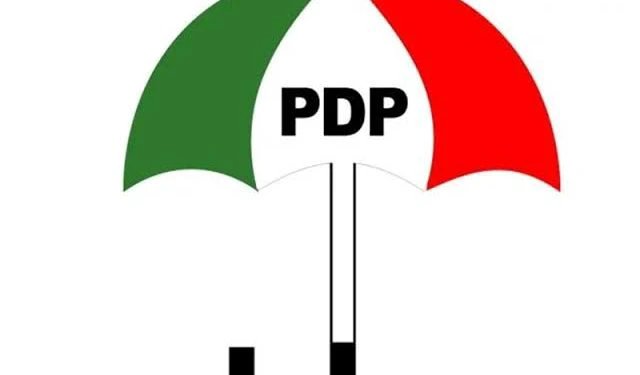
(DDM) – Governor Seyi Makinde of Oyo State has stressed that the Peoples Democratic Party (PDP) must be fully united before serious talks on its 2027 presidential candidate can begin.
Diaspora Digital Media (DDM) gathered that the call came during the PDP Southern Zoning Consultative Summit held in Ikeja, Lagos, where top party stakeholders convened to deliberate on internal reforms and a credible zoning formula ahead of the party’s national convention.
Makinde told reporters after the closed-door session that rebuilding trust, strengthening internal cohesion, and reconnecting with Nigerians must be the primary agenda before candidate selection.
He warned that rushing into zoning or candidate discussions without first addressing structural cracks within the party would doom the PDP to another electoral disaster.
The governor noted that critics who claim PDP is politically dead will be proven wrong as the party regains its organisational strength.
He insisted that the outcome of the Lagos meeting had already demonstrated the party’s willingness to put aside internal disputes for the sake of unity and national credibility.
Makinde emphasised that the summit was not statutory but necessary to engage stakeholders across all southern states in meaningful dialogue.
He added that democracy thrives on consultation, inclusivity, and respect for diverse voices within a party structure.
He said democracy should not be reduced to mere power grabs but should reflect credible engagement that represents the will of the people.
The Lagos summit was attended by prominent PDP leaders, including Governor Douye Diri of Bayelsa State, Governor Ademola Adeleke of Osun State, and representatives of Governor Peter Mbah of Enugu State.
Also present were former PDP Deputy National Chairman Chief Bode George, Board of Trustees Chairman Senator Adolphus Wabara, and several former governors including Olagunsoye Oyinlola, Udom Emmanuel, and Sam Egwu.
Makinde revealed that at least 12 of the 17 southern states were fully represented by zoning committee members, National Assembly representatives, and party elders.
The gathering also discussed the strategic role of the southern region in shaping the PDP’s chances in 2027, particularly given the intense political calculations expected around power rotation.
PDP’s history of zoning has been controversial, often sparking internal divisions over whether the presidency should rotate between the North and South.
In 2022, the party faced criticism after nominating Atiku Abubakar from the North despite calls for a southern candidate, a decision many analysts say fractured its support base in the 2023 elections.
This historical backdrop has heightened expectations ahead of the 2027 convention, with southern leaders pressing for early consultations to avoid past mistakes.
Makinde acknowledged that winning recent by-elections, particularly in Oyo State, had boosted PDP’s morale and disproved claims that the party was politically irrelevant.
He said the success reflected the resilience of PDP supporters and the commitment of its leaders to reclaim national dominance through hard work and strategic alliances.
The governor stressed that Nigerians are yearning for an alternative to the ruling All Progressives Congress (APC), adding that the PDP must present itself as a credible force.
He explained that Thursday’s meeting was part of a broader strategy to ensure the party’s zoning formula reflects fairness, justice, and national balance.
He also confirmed that more consultations will take place across southern states and eventually at the national level before the convention.
Political observers note that Thursday’s summit reflects growing pressure on the PDP to consolidate its base ahead of a highly competitive election season.
Analysts argue that the party’s ability to reconcile its factions and adopt an inclusive approach could determine its viability in 2027.
Makinde expressed confidence that the deliberations in Lagos would pave the way for further engagements capable of repositioning the party for victory.
He urged Nigerians to remain patient and optimistic as the PDP undertakes internal reforms to rebuild confidence in its leadership.
The meeting was called under the auspices of the PDP Zoning Committee, chaired by Governor Douye Diri, and was described as a success by attendees.
Stakeholders are expected to reconvene in the coming weeks for broader consultations and final recommendations before the party’s National Executive Council meeting.
Makinde closed by reiterating that zoning, candidate selection, and electoral strategy would only succeed if the PDP first restores unity, discipline, and credibility within its ranks.
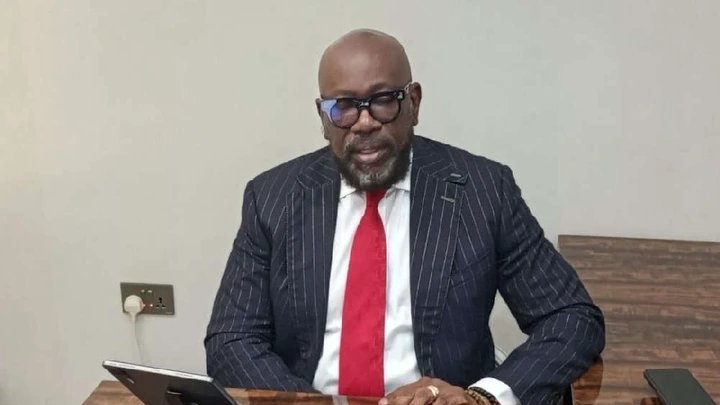
(DDM) – Donald Chidi Amamgbo, the African Democratic Congress (ADC) candidate in the Anambra South Senatorial by-election, has alleged collusion between Governor Chukwuma Soludo and the Independent National Electoral Commission (INEC).
Diaspora Digital Media (DDM) gathered that Amamgbo accused both parties of conspiring to disenfranchise voters and compromise democratic principles during the poll.
INEC declared Emma Nwachukwu of the All Progressives Grand Alliance (APGA) the winner, while Amamgbo finished a distant third.
In an exclusive interview, Amamgbo described the election as a “dangerous pattern of systemic sabotage, desecration of all democratic norms, collusion, and deliberate disenfranchisement.”
He warned that such electoral practices threaten the very foundation of Nigeria’s democracy.
Amamgbo alleged that INEC deliberately withheld accreditation tags for his party’s ward and local government collation agents on the eve of the poll.
He argued that this crippled ADC’s ability to monitor results and protect supporters’ votes during critical stages of collation.
The candidate further referenced a statement attributed to Governor Soludo, describing ADC and Labour Party as “dead in Anambra,” calling it evidence of political bias.
“In Ihiala, INEC circulated a doctored list of polling agents that did not match the authentic list duly submitted and uploaded by our party,” Amamgbo alleged.
“These are not mistakes. They are acts of sabotage,” he stated.
He accused the APGA-led government of normalizing vote-buying and exploiting economic hardship to sway voters.
The candidate insisted that the election produced a senator who would act as a “puppet” under Soludo’s influence, rather than serving the people independently.
Amamgbo called for a comprehensive review of the electoral process in Anambra South and reforms to strengthen INEC’s independence, transparency, and accountability.
He urged the public not to accept the outcome as “one of those things” but to demand justice and democratic integrity.
COPDEM fires back, demands urgent electoral review
The Coalition for the Protection of Democracy (COPDEM) has condemned the allegations of electoral malpractice, describing them as a grave indictment of Nigeria’s democratic system.
COPDEM, in a statement to DDM, demanded an immediate independent review of the election.
The group urged INEC to investigate claims of collusion and take decisive action to restore public confidence in future polls.
Political observers believe the controversy may spark a legal battle if Amamgbo decides to challenge the results in court.
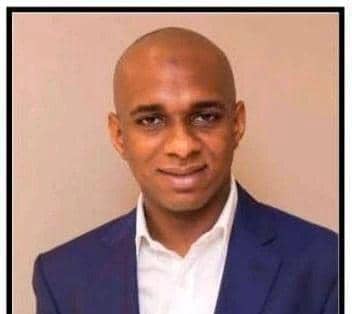
(DDM) – The Economic and Financial Crimes Commission (EFCC) has declared Abdullahi Bashir Haske, son-in-law of former Vice President Atiku Abubakar, wanted.
Diaspora Digital Media (DDM) gathered that the anti-graft agency accused Haske of involvement in alleged criminal conspiracy and money laundering.
The notice was issued by Dele Oyewale, EFCC’s Head of Media and Publicity, on Thursday.
According to the statement, Haske, 38, is being sought in connection with a major financial investigation.
“The public is hereby notified that ABDULLAHI BASHIR HASKE, whose photograph appears above, is wanted by the Economic and Financial Crimes Commission (EFCC) in an alleged case of Criminal Conspiracy and Money Laundering,” the statement read.
The EFCC urged Nigerians with relevant information to report to the nearest police station or any of its offices nationwide.
Haske was last known to reside at No. 6 Mosley Road, Ikoyi, and 952/953 Idejo Street, Victoria Island, both in Lagos State.
The agency published his photograph to aid identification and encourage public assistance in locating him.
Officials confirmed that the ongoing investigation involves multiple jurisdictions and substantial sums allegedly linked to illicit financial transactions.
The commission stressed that credible information could be provided through its regional offices across the country.
These offices include those in Ibadan, Uyo, Sokoto, Maiduguri, Benin, Makurdi, Kaduna, Ilorin, Enugu, Kano, Lagos, Gombe, Port Harcourt, and Abuja.
Nigerians can also contact the EFCC via its dedicated telephone lines or official email address.
This latest development comes amid heightened anti-corruption enforcement by the agency in recent months.
Political analysts note that Haske’s connection to Atiku Abubakar, a key opposition figure, could add political undertones to the case.
However, EFCC officials insist the investigation is purely legal and unrelated to political affiliations.
The agency recently intensified its pursuit of high-profile suspects linked to financial mismanagement and fraud.
Observers believe the manhunt for Haske underscores EFCC’s renewed resolve to prosecute economic crimes swiftly.
As at press time, neither Atiku nor his representatives had issued an official statement regarding the allegations.
-
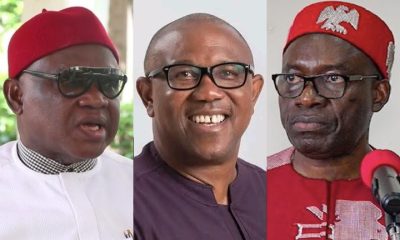
 Featured4 days ago
Featured4 days agoYour Attacks on Peter Obi Are Petty, Stop It! Chekwas Rebukes Soludo
-
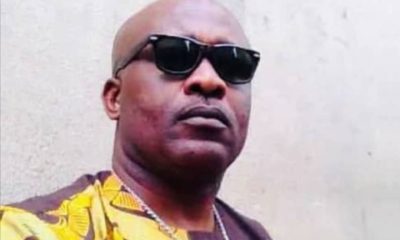
 News3 days ago
News3 days agoTension in Anambra community as senior police officer shoots kinsman dead
Colleagues, others try cover-up; victim's family fights back
-
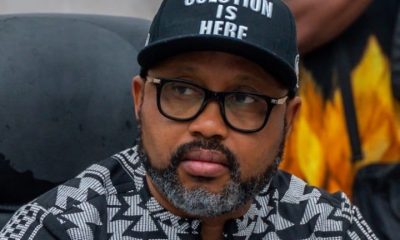
 News6 days ago
News6 days agoAnambra South Bye-Election: APC Chief Rescues Deputy Gov Caught In Vote Buying From Angry Youths
By Chuks Collins, Awka
-

 News5 days ago
News5 days agoNigerian visa applicants must provide 5-yr social media history — US embassy
-
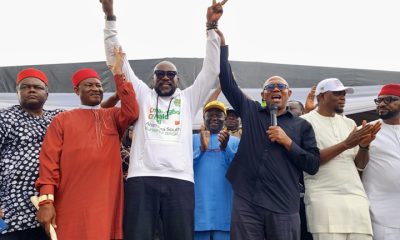
 Analysis6 days ago
Analysis6 days agoSystemic Sabotage: How APC, INEC Colluded To Undermine Amamgbo’s Senatorial Bid
By Arthur Ezechukwu
-

 Celebrity/Entertainment17 hours ago
Celebrity/Entertainment17 hours agoHow Nigerian TikToker Geh Geh Made ₦45 Million in One Night
-

 News3 days ago
News3 days agoTerrorist Organisation: APC, PDP Members in US, UK, France Risk Deportation
-

 Celebrity/Entertainment4 days ago
Celebrity/Entertainment4 days agoWhy single mothers can’t raise boys into proper men — Jim Iyke
-

 News6 days ago
News6 days agoBREAKING: Troops arrest Nigeria’s most wanted terror kingpin
-

 News2 days ago
News2 days agoVandal electrocuted while vandalizing Aba power infrastructure




